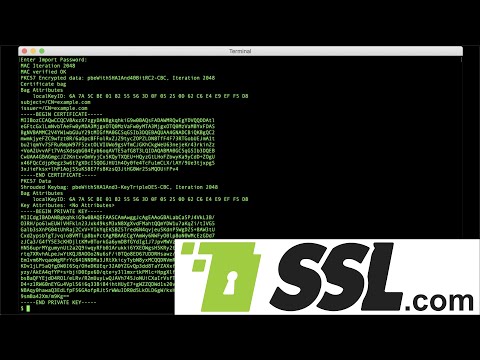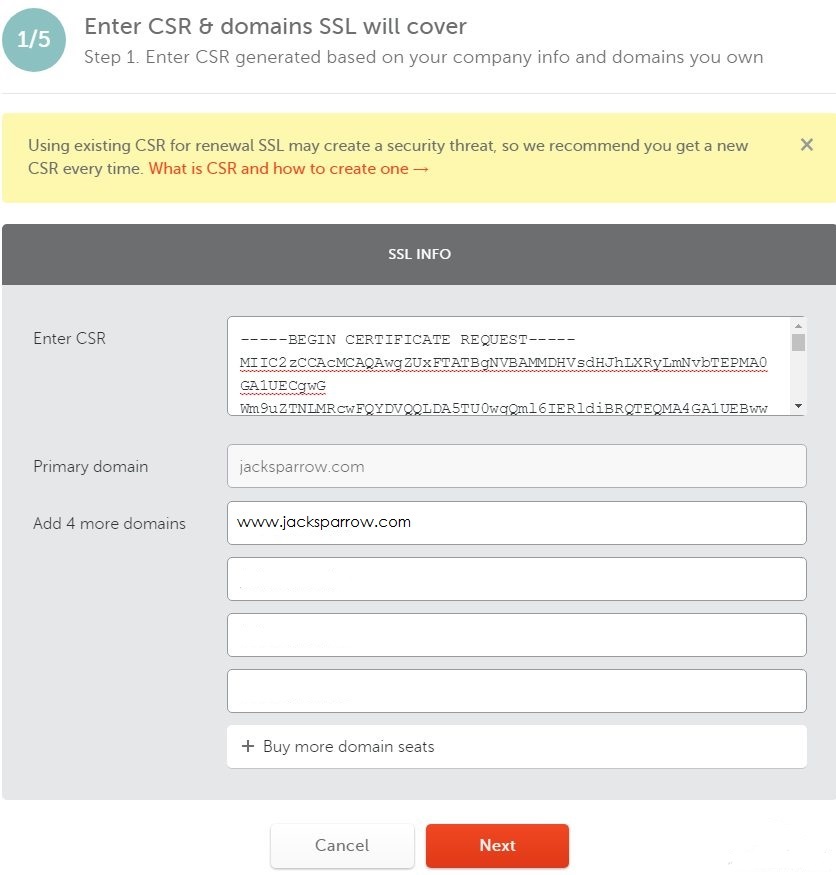
An SSL certificate can be obtained for many reasons. They include security and building trust with your customers. One of these can improve your website's ranking in search engines. But is it really worth the investment? These are pros and con's. Let's begin with the benefits: Trust, Security, and SEO.
SEO benefits
Your website's reputation and security are dependent on an SSL certificate. If your site doesn't have a certificate, visitors won't be able to trust your site, and that can affect your conversion rates. Google will prioritize websites that use HTTPS in its ranking algorithm, making your website more trustworthy.
SSL will not only boost your website's rank, but it also improves the user experience. It provides a safe environment that encourages visitors to spend more time on your website. Google even warns users if their connection isn't secure, as unsecure websites are less attractive to potential customers. This has led both to increased bounce rates and de-ranking of sites that have unsecured connections.

Security
SSL certificates are secured by "chain trust". Certificate Authorities are responsible for issuing these certificates. They are also known as the guarantors for online transactions. Many people wonder if they are important to know the CA that issued the SSL certificate. Yes. Before you use the certificate for the first time, it is wise to check the credentials of any company issuing it.
SSL certificates offer security and encryption, but SSL certificates may not be for everyone. SSL certificates can be secured using "chains of trust", and these "chains” are connected to a trusted entity called Root CA. Complexity is evident in the ecosystem of SSL Certificate CAs.
Building trust and rapport with customers
SSL certificates will increase your online credibility. GlobalSign found that 77% Internet users are concerned about data security. Visitors who feel confident in an ecommerce website are more likely than others to purchase. If your website doesn't have an SSL certificate, your customers might decide to visit competitors.
Additionally, SSL certificates increase your website's loading speed. This will make it quicker for your visitors to load your site. This will increase conversion rates.

Cost
Purchasing an SSL certificate is an important step in protecting sensitive information from hackers. However, it can be costly to purchase a commercial SSL certificate. There are many ways you can save money on SSL certificates. Many web hosts resell SSL, and often offer greater discounts than commercial certificate authorities. This article will answer some common questions and provide some tips before you buy your SSL certificate.
SSL certificates cost depends on several factors. These include the level of certificate you require, how many domains your site has, and the validity of the certificate. It's best to choose the right certificate for you site and your type of website. Although SSL certificates are available for free, you will need to renew them manually.
FAQ
How do you design a website?
Your customers will first need to understand the purpose of your website. What do your customers want from you when they visit your website?
What problems might they have if they don't find what they're looking for on your site?
Once you know this, you must figure out how to solve those problems. Make sure everything looks good on your website. It should be easy to use and navigate.
Your site should be extremely well designed. Make sure that it doesn't take too long to load. People won't stay as long if it takes too long to load. They will go elsewhere.
It is essential to determine where all your products reside before you start building an eCommerce website. Are they all located in the same location? Are they scattered about your site?
It's important to decide if you want to sell just one product or multiple products. Are you interested in selling one type of product? Or multiple types?
These questions will help you decide if you want to build your website.
Now, it's time to take care of the technical aspects. What will it take to make your site work? Will it run fast enough? Is it possible to access the information quickly using a computer?
Will people be able to buy something without having to pay extra? Is it necessary for them to register before they are able to purchase anything?
These are essential questions that you need to ask yourself. These are the questions that you need to answer in order to be able move forward.
Can I make my website using HTML and CSS?
Yes! If you've followed the steps, you should now be able create your website.
You're now familiar with the basics of creating a website structure. However, you must also learn HTML and CSS Coding.
HTML stands as HyperText Markup Language. Think of it like writing a recipe for a dish. You'd list ingredients, instructions, and directions. HTML can also be used to inform a computer if certain parts of text should appear bold, underlined and italicized. It's the language that documents use.
CSS stands for Cascading Style Sheets. You can think of CSS as a style sheet for recipes. Instead of listing all ingredients and instructions, you simply write down the basic rules for things such as font sizes, colors or spacing.
HTML tells the browser how a page should look; CSS tells it what to do.
Don't worry if you don't know the meaning of either one of these terms. Follow the tutorials and you will soon be creating beautiful websites.
How much do web developers make?
The hourly rate for a website you create yourself is $60-$80. You can charge more if you're an independent contractor. A typical hourly rate for a freelancer could be between $150 and $200.
How much does it cost for a website to be built?
The answer depends on what you are trying to achieve with your website. Google Sites may not be required if you simply want to provide information about yourself or your company.
But if your goal is to attract visitors to a website, it's likely that you'll need to invest in something more robust.
A Content Management System (like WordPress) is the best solution. These programs make it easy to create websites without any programming knowledge. The sites are hosted by third-party businesses, so there is no risk of your site being hacked.
Squarespace offers a great way to build your website. The plans range from $5 per month up to $100 per month depending on what content you want to put on your site.
Statistics
- The average website user will read about 20% of the text on any given page, so it's crucial to entice them with an appropriate vibe. (websitebuilderexpert.com)
- Studies show that 77% of satisfied customers will recommend your business or service to a friend after having a positive experience. (wix.com)
- Is your web design optimized for mobile? Over 50% of internet users browse websites using a mobile device. (wix.com)
- It's estimated that in 2022, over 2.14 billion people will purchase goods and services online. (wix.com)
- Did you know videos can boost organic search traffic to your website by 157%? (wix.com)
External Links
How To
What is website hosting?
Website hosting refers to where people go when they visit a website. There are two types.
-
Shared hosting - This is the cheapest option. Your website files are stored on a server that is owned by another person. When customers visit your site, their requests travel over the Internet to that server. The request is sent to the server's owner who then passes it on to you.
-
Dedicated hosting - This is the most expensive option. Your website is located on only one server. Your traffic stays private as no other websites can share the same server.
Shared hosting is preferred by most businesses because it's cheaper than dedicated hosting. The company hosting the server will provide the resources necessary to manage your website.
However, both have their advantages and disadvantages. Here are the differences:
Pros of Shared Hosting
-
Lower Cost
-
Easy To Set Up
-
Frequent updates
-
It is available on many Web Hosting Companies
You can get shared hosting for as low as $10 per monthly. Remember that shared hosting usually comes with bandwidth. Bandwidth is the data transfer speed that you have over the Internet. Even if you upload only photos to your blog you might still have to pay more for large amounts of data that you transfer through your account.
You'll soon realize why your old host cost so much once you get started. The majority of shared hosts offer limited customer support. Their techs will occasionally walk you through setting up your site, but you're on your own after that.
Providers that offer 24-hour customer support are worth looking into. They will take care of any issues while you sleep.
Cons of dedicated hosting
-
More Expensive
-
Less common
-
Requires specific skills
With dedicated hosting, you get everything you need to run your website. You won't have worry about whether your website is using enough bandwidth, or whether it has enough RAM (random-access memory).
This means that upfront, you'll need to spend a bit more. Once you get started with your online business, you will find that you don't require much technical support. You'll quickly become an expert at managing your server.
Which Is Better For My Business:
The answer depends on what kind of website you want to create. If you only want to sell products, then shared hosting might be the best choice. It is simple to set up and easy to maintain. Because you share a server, you will most likely receive frequent updates.
If you are looking to create a community around your brand, dedicated hosting is the best option. Instead of worrying about your traffic, you can build your brand while still being able to concentrate on your business.
Bluehost.com has both. They offer unlimited data transfers per month, 24/7 support and free domain registration.